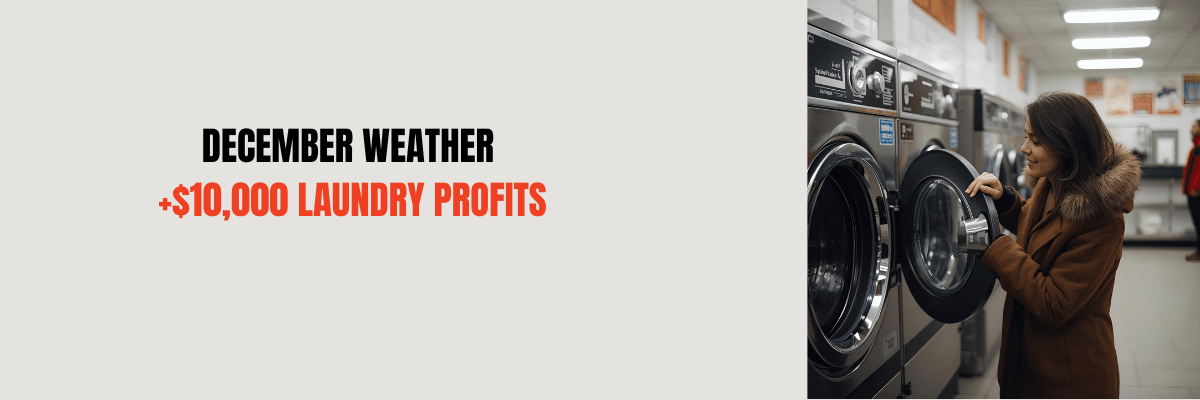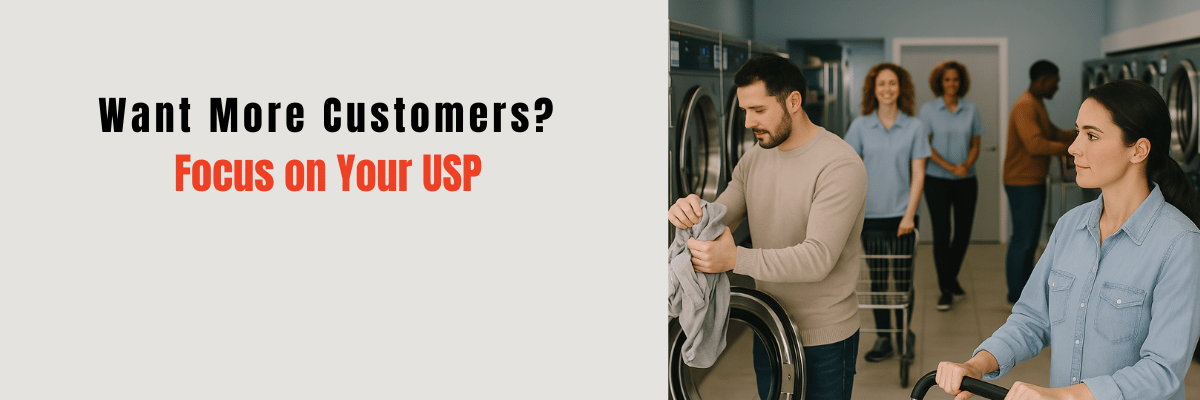Commercial Laundry Business 101: Frequently Asked Questions Answered


Embarking on Your Entrepreneurial Journey: Comprehensive Guide to Establishing a Commercial Laundry Business
Are you considering taking a plunge into the entrepreneurial pool and have a knack for cleanliness? Or maybe you're looking for a thriving business opportunity that serves your community? If yes, starting a commercial laundry business could be a promising venture. Today, we aim to provide comprehensive answers to the top 15 frequently asked questions (FAQs) that budding laundry business owners often pose.
Launching a commercial laundry business requires in-depth planning, meticulous market research, and a keen understanding of the industry's nuances. This extensive guide to frequently asked questions aims to provide all the crucial information you need to pave your path towards a profitable laundry business.
From securing licenses and permits to calculating equipment costs and staffing requirements, we strive to cover a broad array of topics. Our goal is to equip you with the necessary knowledge to navigate the hurdles and opportunities associated with starting a commercial laundry business. Whether your interest lies in inaugurating a laundromat, delivering drop-off/pick-up services, or catering to commercial clients, consider this guide a priceless resource.
Let's delve into your most pressing queries. By the time you finish reading this blog, you will possess a solid knowledge base that will help you confidently embark on your entrepreneurial journey. Here's to your successful endeavor in establishing a thriving commercial laundry business. Let's commence!

Top Commercial Laundry Business Related FAQ
Question- What is a commercial laundry business?
Answer- A commercial laundry business is an establishment that provides large-scale laundry services to various businesses, organizations, and institutions. These businesses could cater to a variety of clients, including hotels, hospitals, gyms, restaurants, among others, undertaking the task of washing, drying, and folding their laundry.
Question- What services does a commercial laundry business offer?
Answer- Commercial laundry businesses typically extend services like washing, drying, ironing, folding, and at times even pickup and delivery of laundry. They might also provide specialized services like dry cleaning, stain removal, and garment repair.
Question- How can I establish a commercial laundry business?
Answer- Initiating a commercial laundry business necessitates market research, developing a well-structured business plan, securing financing, identifying an apt location, purchasing the necessary equipment (such as commercial washers, dryers, and ironing machines), and recruiting trained personnel. It's also imperative to comply with local regulations and procure any necessary permits or licenses.
Question- What types of commercial laundry equipment are commonly used?
Answer- The equipment you'll need for a commercial laundry business usually encompasses commercial-grade washing machines, dryers, industrial irons, folding tables, laundry carts, garment racks, and hangers. You might also require a water filtration system, laundry detergent dispensers, and other accessories.
Question- Are there any specific maintenance requirements for commercial laundry equipment?
Answer- Yes, regular maintenance is crucial to keep commercial laundry equipment running smoothly. Common maintenance tasks include cleaning lint filters, inspecting and cleaning the drain lines, lubricating moving parts, checking and replacing worn-out belts or bearings, and scheduling professional servicing according to the manufacturer's recommendations.
Question- What is the average lifespan of commercial laundry equipment?
Answer- The average lifespan of commercial laundry equipment can vary depending on factors such as the brand, model, usage intensity, and maintenance. On average, well-maintained commercial laundry equipment can last anywhere from 10 to 15 years. However, some high-quality models may have longer lifespans.
Question- Are there any financing options available for purchasing commercial laundry equipment?
Answer- Yes, there are financing options available for purchasing commercial laundry equipment. Banks, equipment leasing companies, or manufacturers themselves may offer financing or leasing programs specifically tailored for commercial laundry businesses. It's advisable to explore different options and choose the one that best suits your financial needs.
Question- How much space is needed for a commercial laundry business?
Answer- The space you need for a commercial laundry business depends on your operation's scale. You need to accommodate equipment, store laundry supplies, allot areas for sorting and folding, and possibly space for an office. Typically, a commercial laundry facility's size might vary from a few hundred to several thousand square feet.
Question- How do commercial laundry businesses manage customer orders?
Answer- Commercial laundry businesses usually implement a system to efficiently manage customer orders. This system could be a software or an online platform for order placement, tracking, and invoicing. Customers might place orders in person, via phone calls, or through an online portal, which the laundry business processes accordingly.
Question- How do commercial laundry businesses deal with large volumes of laundry?
Answer- Commercial laundry businesses manage hefty volumes of laundry using industrial-grade equipment designed for heavy loads. They often operate multiple washing machines and dryers simultaneously, enabling them to process a considerable number of items efficiently. The staff is trained in sorting, washing, and folding techniques to streamline the process.
Question- Do I need any permits or licenses to run a commercial laundry business?
Answer- Yes, operating a commercial laundry business typically requires obtaining certain permits and licenses. These requirements might vary based on your location and local regulations. It's crucial to consult your local government or small business administration to identify the specific permits and licenses you need for your commercial laundry business. Adherence to legal requirements will ensure the seamless and lawful operation of your business.
Question- How much does it cost to start a commercial laundry business?
Answer- The cost of starting a commercial laundry business can fluctuate significantly based on various factors. Some key expenses to consider when estimating the startup costs include location, equipment costs, facility costs, supplies and inventory, renovation costs, business licenses and permits, marketing and advertising, utilities and insurance, and operational expenses.
Question- What are the potential sources of financing for a commercial laundry business?
Answer- There are several potential sources of financing for a commercial laundry business. These could include personal savings, bank loans, Small Business Administration (SBA) loans, equipment financing, partnerships or investors, crowdfunding, grants and government programs, and personal or business credit cards. When exploring financing options, keep in mind the interest rates, repayment terms, associated fees, and possible impact on your cash flow. It's advisable to consult with financial advisors or professionals to assess the best funding strategy for your commercial laundry business.
Question- What are the ongoing operational costs of running a commercial laundry business?
Answer- Running a commercial laundry business involves various ongoing operational costs. While the specific expenses may vary based on the scale and nature of your business, here are some common operational costs to consider:
Utilities: Your utility bills will include costs for water, electricity, and gas. These expenses can be significant, especially considering the large volume of laundry being processed. Implement energy-efficient practices and equipment to minimize utility costs.
Maintenance and Repairs: Regular maintenance of your laundry equipment is essential to ensure its smooth operation. Budget for routine maintenance, equipment inspections, and occasional repairs or part replacements. Consider service contracts or warranties to cover unexpected breakdowns.
Staffing Costs: Factor in the costs of hiring and compensating employees, including wages, payroll taxes, benefits (if applicable), and employee training. Your staffing needs will depend on the size and workload of your laundry operation.
Laundry Supplies: Estimate the ongoing costs of laundry supplies, including detergents, fabric softeners, bleach, stain removers, laundry bags, hangers, and other consumables. Consider purchasing in bulk or negotiating favorable supplier contracts to minimize costs.
Rent or Mortgage Payments: If you don't own the facility, ongoing rent or mortgage payments are part of your operational expenses. Include these costs in your budget calculations.
Insurance: Allocate funds for insurance premiums to protect your business assets, equipment, liability, and workers' compensation. The cost of insurance can vary based on factors such as location, coverage amounts, and the size of your business.
Marketing and Advertising: Set aside a budget for ongoing marketing and advertising efforts to attract new customers and retain existing ones. This includes online advertising, print materials, promotions, and maintaining an online presence.
Administrative Expenses: Consider expenses related to bookkeeping, accounting services, software or technology tools for business management, licenses and permits renewals, and professional fees for legal or consulting services.
It's crucial to regularly review and track your operational costs to ensure profitability and make adjustments as needed. Monitoring and managing these expenses effectively will contribute to the long-term success of your commercial laundry business.
Question- How can I attract customers to my commercial laundry business?
Answer- To attract customers to your commercial laundry business, implement effective laundromat marketing strategies and provide excellent service. Here are some key steps:
Targeted Marketing: Identify your target market, such as local businesses, residential customers, or specific industries. Tailor your marketing efforts to reach these potential customers through online advertising, local directories, social media platforms, and targeted promotional campaigns.
Competitive Pricing: Research the market rates and set competitive pricing for your services. Consider offering introductory discounts or loyalty programs to attract new customers and encourage repeat business.
Exceptional Service: Focus on providing high-quality service to differentiate yourself from competitors. Offer convenient options like pickup and delivery, online payment option, express services, or specialized cleaning services to cater to diverse customer needs.
Online Presence: Establish a professional website that showcases your services, pricing, and contact information. Utilize online review platforms to encourage satisfied customers to leave positive reviews and enhance your online reputation.
Referral Programs: Encourage satisfied customers to refer others to your business by offering incentives or discounts for referrals. Word-of-mouth recommendations can be powerful in attracting new customers.
Partnerships: Form partnerships with local businesses, such as hotels, spas, or gyms, to provide laundry services. Collaborate with these establishments to offer exclusive discounts or bundled packages to their customers.
Customer Engagement: Engage with customers through social media platforms, email newsletters, or loyalty programs. Provide useful tips, updates, and promotions to keep customers engaged and informed.
Remember, consistent marketing efforts, outstanding customer service, and positive customer experiences are key to attracting and retaining customers for your commercial laundry business.
Question- What are the common challenges faced by commercial laundry businesses?
Answer- Commercial laundry businesses face several common challenges that can impact their operations and profitability. Here are some challenges to be aware of:
Competition: The laundry industry can be highly competitive, especially in densely populated areas. Competing with existing laundromats, established commercial laundry services, and online laundry platforms requires strategic differentiation and effective marketing strategies.
Equipment Maintenance and Upkeep: Laundry equipment, such as washers, dryers, and ironing machines, require regular maintenance and occasional repairs. Equipment breakdowns can disrupt operations and lead to downtime, affecting customer satisfaction and revenue. Ensuring proper maintenance schedules and having backup equipment or contingency plans in place can help mitigate these challenges.
Rising Utility Costs: Utilities, including water, electricity, and gas, contribute significantly to operational expenses. Fluctuations in utility costs can impact profitability, especially if energy prices rise. Implementing energy-efficient practices, investing in eco-friendly equipment, and negotiating favorable utility contracts can help mitigate this challenge.
Staffing and Employee Management: Recruiting and retaining skilled employees can be a challenge in the laundry industry. High turnover rates, employee training, and managing work schedules require careful attention. Additionally, managing staff during peak periods or unexpected spikes in demand can be challenging. Providing a positive work environment, competitive wages, ongoing training, and employee recognition can help attract and retain talented staff.
Quality Control and Customer Satisfaction: Maintaining consistent quality control standards is crucial for customer satisfaction. Ensuring that garments and linens are properly cleaned, free of stains, and well-folded requires attention to detail and effective quality control processes. Addressing customer complaints promptly and effectively is essential to maintain a positive reputation and retain clients.
Seasonal Fluctuations: Laundry businesses may experience seasonal fluctuations in demand. For example, during summer, hotels and vacation rentals may require more laundry services, while other industries may experience slower periods. Balancing staffing levels, managing inventory, and adapting marketing strategies to accommodate seasonal demand variations can be a challenge.
Regulatory Compliance: Compliance with local health and safety regulations, environmental standards, and licensing requirements is essential for a commercial laundry business. Staying informed about relevant regulations and maintaining necessary permits and certifications can be demanding.
Technological Advancements: Keeping up with advancements in laundry technology can be a challenge. Upgrading equipment, implementing laundry management software, and adopting automation solutions require financial investment and staff training. Embracing technology can, however, improve efficiency, enhance customer experience, and provide a competitive edge.
By anticipating and addressing these challenges proactively, commercial laundry businesses can position themselves for long-term success. Regular evaluation, strategic planning, and adaptability are key to navigating the dynamic landscape of the laundry industry.
Question- How can I effectively manage and train staff in a commercial laundry business?
Answer- Effectively managing and training staff in a commercial laundry business is essential for smooth operations and customer satisfaction. Here are some key steps to consider:
Define Roles and Responsibilities: Clearly define each employee's role and responsibilities to avoid confusion and ensure efficient workflow. Establish job descriptions and communicate expectations regarding job performance, quality standards, and customer service.
Comprehensive Training Program: Develop a comprehensive training program for new hires that covers all aspects of your laundry operations. Include training on equipment usage, sorting and handling different types of fabrics, stain removal techniques, safety procedures, customer service skills, and any specialized services you offer.
Ongoing Training and Skill Development: Implement ongoing training initiatives to keep your staff up to date with the latest industry practices, new equipment, and emerging technologies. This could include workshops, online courses, or cross-training to enhance their skills and adaptability.
Safety and Compliance Training: Prioritize safety in your laundry operations. Conduct regular safety training sessions to educate employees on proper handling of equipment, hazardous substances, and emergency procedures. Ensure compliance with safety regulations and maintain a safe working environment.
Effective Communication: Foster open and clear communication channels with your staff. Conduct regular team meetings, provide feedback and performance evaluations, and encourage employees to share their ideas, concerns, and suggestions. Establish a culture of teamwork and collaboration.
Employee Recognition and Incentives: Recognize and reward exceptional performance to motivate your staff. Consider implementing incentive programs or bonuses tied to productivity, customer satisfaction, or other key performance indicators.
Standard Operating Procedures (SOPs): Develop and document standard operating procedures for various tasks and processes in your laundry business. SOPs provide a reference guide for employees, ensuring consistency and efficiency in operations.
Employee Empowerment: Encourage employees to take ownership of their work and make decisions within their scope of responsibility. Empower them to solve problems, handle customer inquiries, and resolve minor issues independently, fostering a sense of accountability and autonomy.
Team Building and Morale Boosting: Organize team-building activities, celebrate milestones and achievements, and create a positive work environment. Encourage a healthy work-life balance and support employee well-being.
Remember, effective staff management and training require ongoing attention and investment. Regularly assess the training needs, provide opportunities for growth, and maintain open lines of communication to cultivate a motivated and skilled workforce in your commercial laundry business.
Question- What are the different types of commercial laundry business models?
Answer- Commercial laundry businesses can adopt various business models depending on their target market and operational preferences. Here are some common types of commercial laundry business models:
Laundromat: A laundromat is a self-service laundry facility where customers can wash and dry their clothes using coin-operated or card-operated machines. Laundromats are typically located in densely populated areas and cater to individual customers.
On-Premises Laundry (OPL): On-Premises Laundry refers to laundry operations that are part of a larger facility, such as a hotel, hospital, or gym. These businesses handle their laundry in-house to maintain control over quality, timing, and cost.
Industrial or Commercial Laundry Service: Industrial or commercial laundry services cater to businesses and institutions that outsource their laundry needs. These businesses handle large volumes of laundry and offer services such as linen rental, uniform cleaning, and specialized cleaning for industries like hospitality and healthcare.
Dry Cleaning: Dry cleaning businesses specialize in cleaning delicate fabrics and garments that cannot be washed with water. They use solvents and other specialized cleaning techniques to remove stains and refresh the clothing. Dry cleaning businesses often offer additional services like alterations and repairs.
Linen Supply: Linen supply businesses provide rental and cleaning services for linens, towels, and other textiles used by hotels, restaurants, and healthcare facilities. They offer a convenient and cost-effective solution for businesses that require a regular supply of clean linens.
Online Laundry Services: Online laundry services operate through a digital platform where customers can schedule laundry pickup and delivery. These businesses often partner with local laundromats or commercial laundry facilities to provide convenient and efficient laundry services to customers.
It's important to choose a business model that aligns with your target market, resources, and operational capabilities. Conduct market research and evaluate the demand for different types of laundry services in your area to make an informed decision.
Question- What are the potential growth opportunities for a commercial laundry business?
Answer- A commercial laundry business can explore several growth opportunities to expand its operations and increase profitability. Here are some potential avenues for growth:
Geographic Expansion: Consider expanding your services to new geographic areas. This can involve opening additional branches or partnering with existing laundromats or businesses in different locations. Expanding your reach allows you to tap into new customer markets and increase your service coverage.
Diversification of Services: Explore diversifying your service offerings to attract a broader customer base. For example, you can expand into specialized cleaning services such as dry cleaning, leather and suede cleaning, or wedding gown preservation. Additionally, consider offering additional services like alterations or repairs to further meet customer needs.
Target New Customer Segments: Identify new customer segments that could benefit from your laundry services. This could include targeting specific industries such as hotels, spas, healthcare facilities, restaurants, or sports teams. Customizing your services to cater to the unique requirements of these segments can help you secure long-term contracts and increase revenue.
Strategic Partnerships: Seek strategic partnerships with complementary businesses. For instance, partnering with hotels, vacation rentals, or event planners can provide a consistent stream of laundry business. Collaborate with local businesses, such as gyms or healthcare providers, to handle their laundry needs and create mutually beneficial relationships.
Online Presence and Delivery Services: Invest in an online platform that allows customers to schedule services, request pickups and deliveries, and track their orders. Implement a convenient and efficient delivery service for drop-off/pick-up or commercial clients, providing added convenience and attracting customers who value door-to-door service.
Upgrade Equipment and Technology: Stay updated with the latest commercial laundry equipment and technologies to improve efficiency, quality, and turnaround time. Consider investing in energy-efficient machines, laundry management software, automation systems, and advanced laundry technologies to enhance productivity and customer satisfaction.
Franchising or Licensing: If you have established a successful and replicable business model, consider franchising or licensing your brand and operations to entrepreneurs interested in starting their own commercial laundry business. This can help you expand your brand presence and generate revenue through franchise fees or licensing agreements.
Customer Loyalty Programs: Implement customer loyalty programs to incentivize repeat business and referrals. Offer discounts, rewards, or exclusive perks to encourage customer loyalty and increase retention rates.
When exploring growth opportunities, conduct thorough market research, analyze customer needs, and carefully evaluate the financial feasibility and scalability of each option. Developing a strategic growth plan will help guide your business towards sustained expansion and success.
Conclusion
Starting a commercial laundry business can be a lucrative venture, but it's important to be well-informed and prepared. In this blog post, we've answered the top frequently asked questions (FAQs) related to starting a commercial laundry business. We covered topics such as permits and licenses, startup costs, financing options, attracting customers, operational costs, pricing strategies, staff management, and growth opportunities.
By addressing these FAQs, we've provided valuable insights and guidance to aspiring entrepreneurs in the commercial laundry industry. Remember to conduct thorough research, create a solid business plan, and adapt to the evolving market trends. Managing inventory, tracking items, and implementing efficient processes will contribute to the success of your business.
Starting a commercial laundry business requires dedication, attention to detail, and a commitment to customer satisfaction. With the right knowledge and careful planning, you can navigate the challenges and seize the opportunities in this industry. Good luck on your journey as you embark on this exciting entrepreneurial endeavor!

%20(1200%20x%20400%20px).png)




